On the night he was betrayed, scripture tells us (1 Corinthians 11: 23-25), Christ took bread, broke it and said to his disciples: “This is my body, which is broken for you. Do this in remembrance of me.”
In the same way, he took a cup of wine and said: “This cup is the new covenant in my blood; do this, whenever you drink it, in remembrance of me.”
Thereafter the blood of Christ was said to be present in the sacrament of the Eucharist, in the moment that wine is consecrated at an altar.
This belief necessitated the establishment of vineyards in diverse and disparate lands: no wine, no holy ceremonies.
And so, for centuries, priests and religious practitioners helped preserve and promote winemaking skills, cultivating and supplying sacramental wine to worshipers in the Old and New Worlds*.
I own a bottle of sacramental wine, made at Sevenhill winery in the Clare Valley, South Australia.
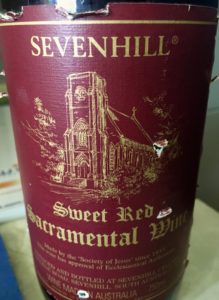 The label on the bottle features ornate, gold script and a sketch of St Aloysius’ Church, which has served the Parish of Sevenhill since 1875.
The label on the bottle features ornate, gold script and a sketch of St Aloysius’ Church, which has served the Parish of Sevenhill since 1875.
Two Austrian Jesuit priests and a large of group of immigrant Catholics settled in the area, 130 kilometres north of Adelaide, in the early 1850s.
Impressed by the quality of the local soil, they purchased 100 acres of land in 1851 and named their domain Sevenhill, after the Seven Hill district of Rome.
They planted vines and harvested grapes, producing sacramental wine for the emerging Catholic parishes across Australia (a tradition that continues to this day).
As the wine in my bottle is not yet consecrated, I have in my possession nothing more than sweet fermented grape juice.
In any case, I am a non-believer. I don’t accept, as many do, the literal truth of the Holy Book. The strange, elaborate rituals that accompany the church are baffling to me.
I am, however, alive to good stories – to the drama and the meaning of allegories and parables – and there is a visceral power in the imagery of sacred blood. I handle my bottle of Sevenhill wine with a level of care that borders on reverence. I know it’s not blood, but even so…
I am drinking wine as I write this piece: a Bordeaux blend of cabernets from Warrenmang winery in the Pyrenees region of Victoria, Australia.
I met the winery owner at the height of a fierce drought, about 12 years ago.
Luigi Bazzani, then in his late 60s, arrived at the cellar door with dust on his hands and lines of sweat streaked across his solemn face. He had come from the vines in a valley below. He was breathing hard and clearly distracted.
The vines, he told me, were suffering in the heat. They were stressed and diminished, and no amount of vineyard care could alleviate their fate.
He turned away and dropped his head. Out in the dry and shimmering fields, rows of vines stood aching in the sun. Their pain was his pain.
Luigi tried to sell the winery in the decade that followed, but no one made an acceptable offer until 2017. So Luigi pressed on, wrestling each year with the monumental demands that accompany wine production.
Earlier this year – less than two years since the winery changed hands, and decades after the first vines were planted – the winery suffered extensive damage, when a gas bottle exploded by a barbeque installed at the site.
The fire that followed swept through the restaurant and cellar, reducing to rubble the work of years, belching ash into the night and staining the ground with molten wine. It breaks my heart to think of it.
When you pull the cork on a bottle of wine, what exactly do you unleash? How many stories? How much pain? How much history, hope and grandeur?
I have on my table two bottles of wine, each the product of almighty human effort. It is the human effort that I revere: the dedication and resolve; the artistry and courage.
I respect the blood, sweat and tears.
* A brief history of wine and religion; Robert Fuller, 2014


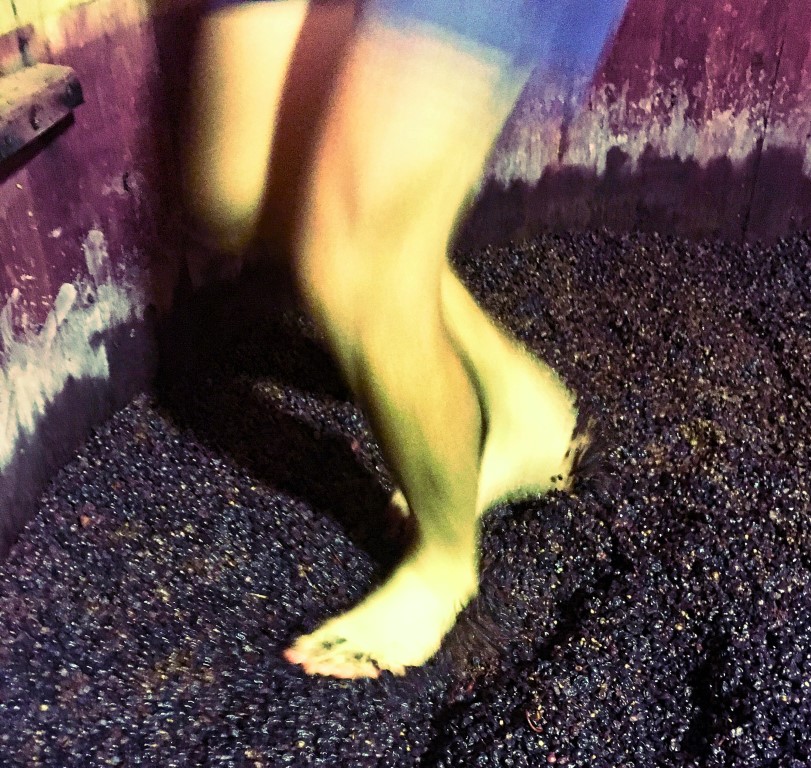

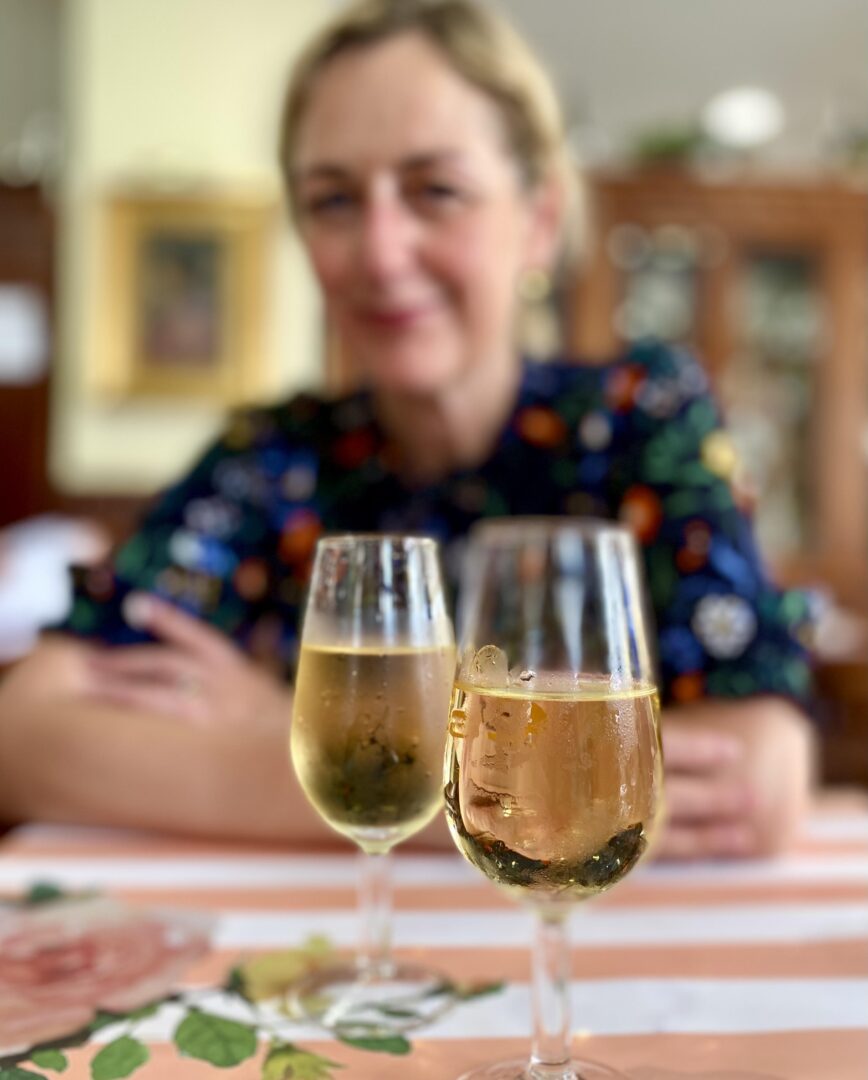
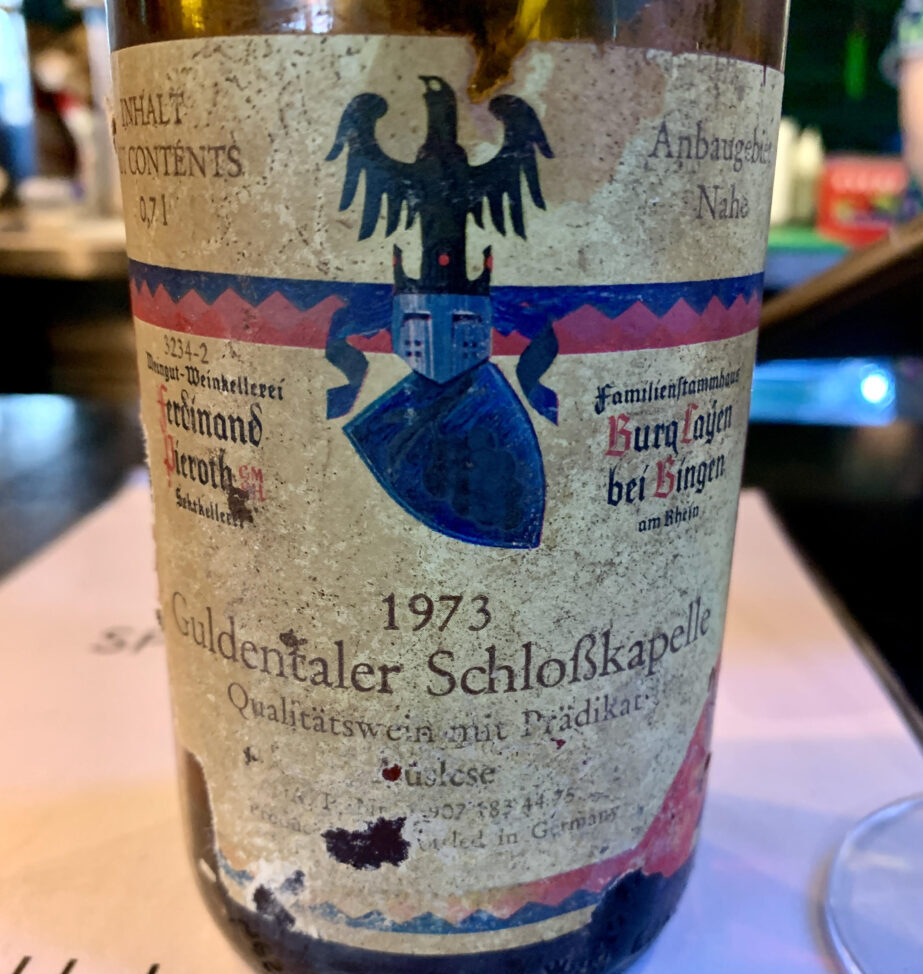
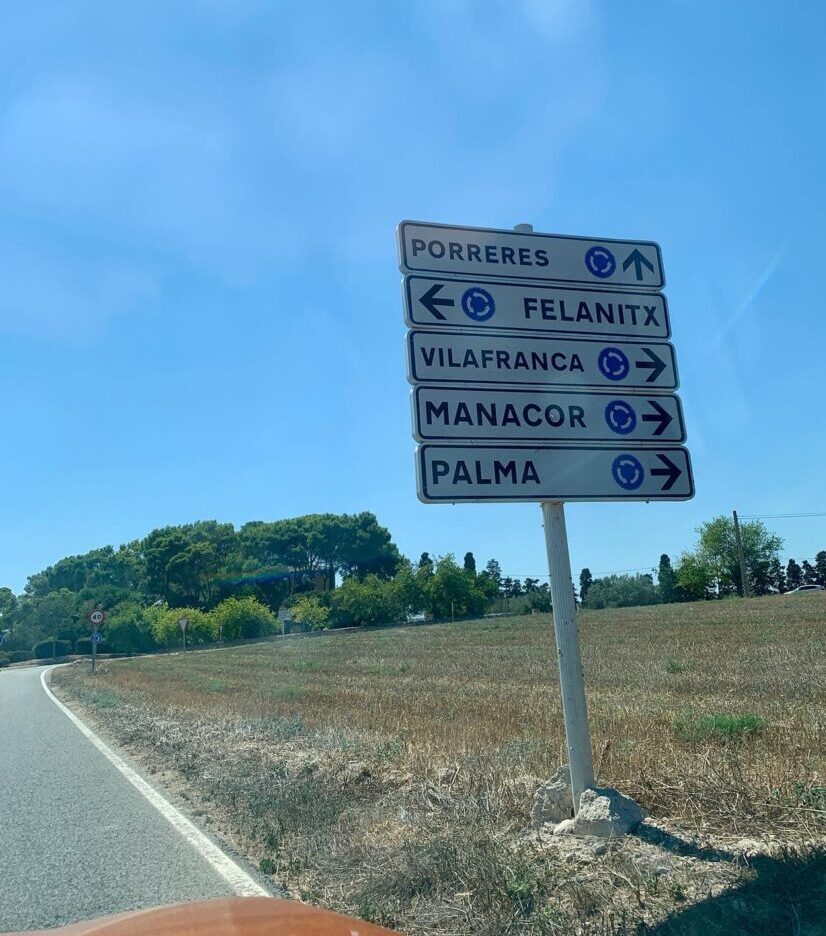
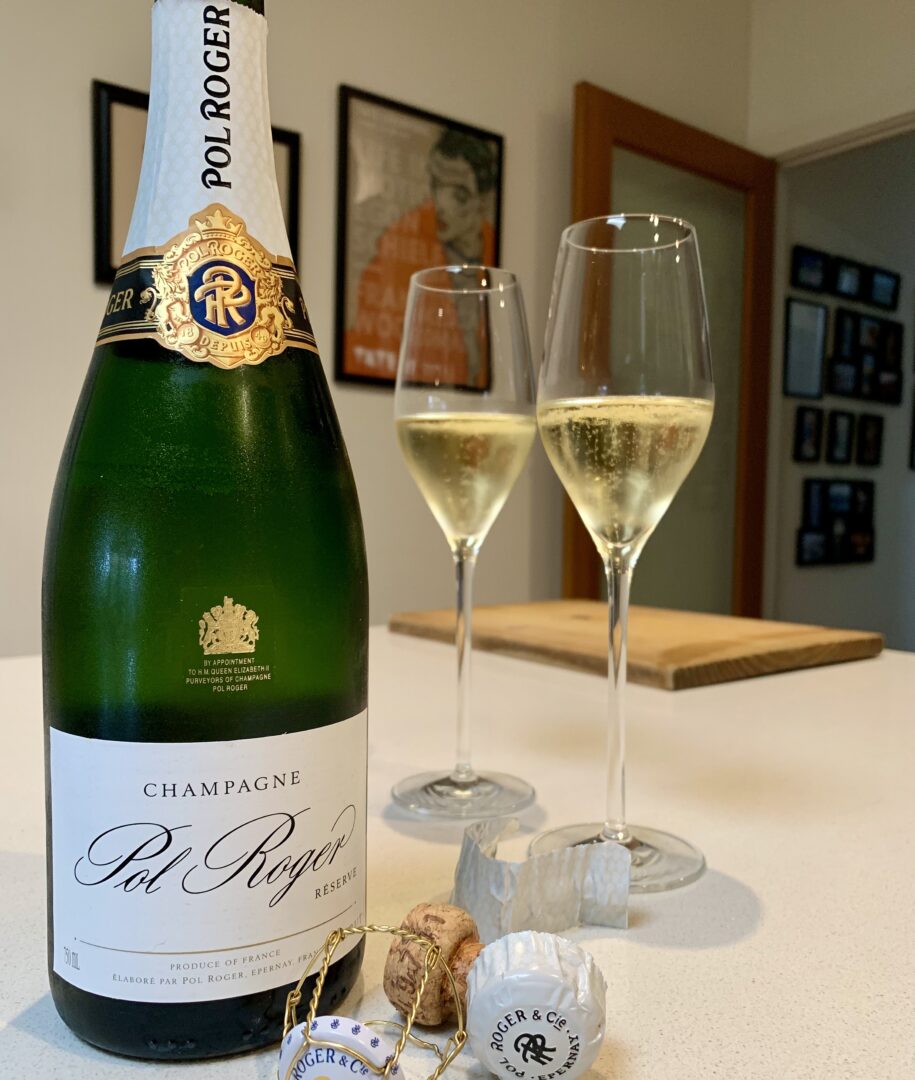

Many threads woven through an interesting story Paul. Well told, with empathy. I love our sunburnt country but those ‘droughts and flooding rains’ are outcomes of Australia being a land of extremes weather-wise. Banjo Paterson & Henry Lawson even focussed on them in their writings of the colonial period.
PS: The bottle of ‘sacramental wine, made at Sevenhill winery in the Clare Valley, South Australia’, is familiar!
‘Her beauty and her terror, the wide brown land for me.’ Thanks for the feedback! xx